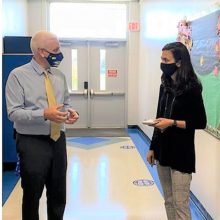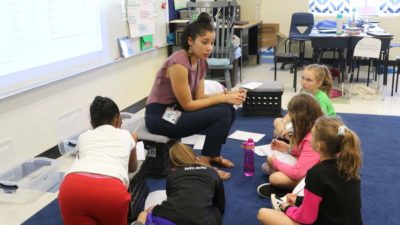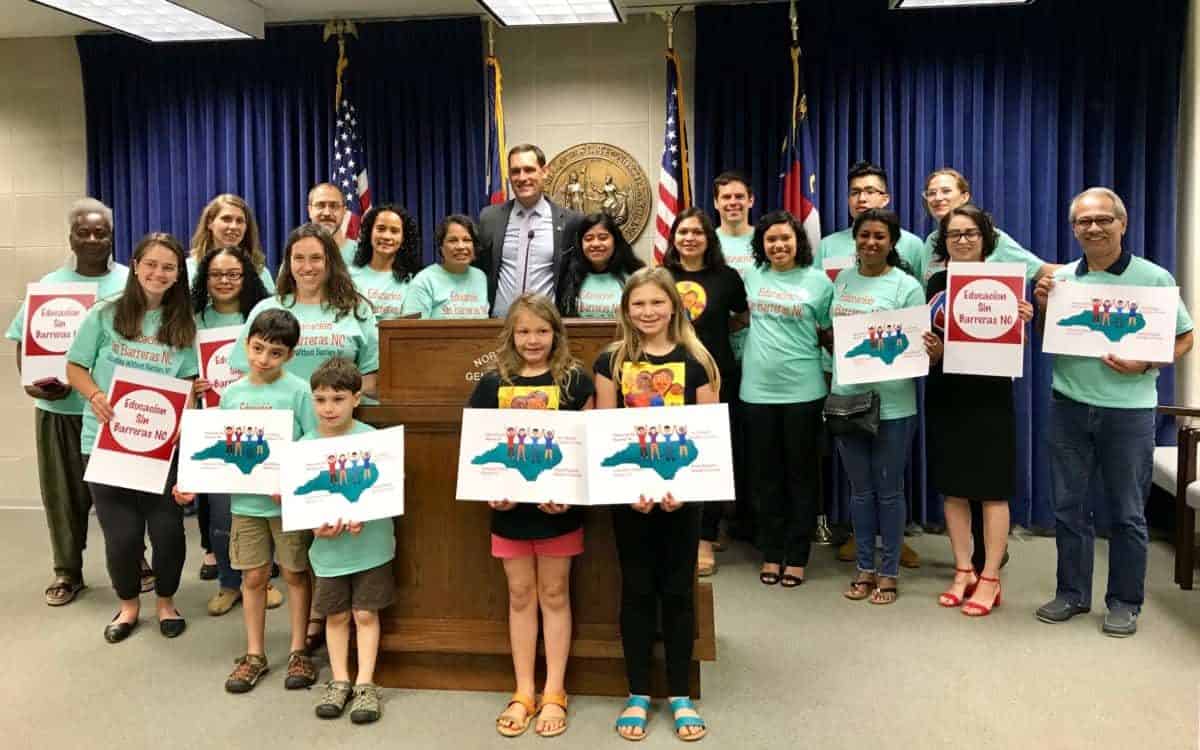
Lady Johana Cuervo remembers being pulled out of class in elementary school to attend English as a Second Language (ESL) instruction. She found that strange, since she was born in the United States and her first language was English — Spanish was her second language that she practiced at home. Things escalated by the time she got to high school, when she remembers a teacher handing her classmates chapter books and handing her and other English learners picture books.
“It made me feel like being bilingual was worthless, useless, and I was embarrassed to be Latino,” said Cuervo. “I was embarrassed to even say that I was bilingual.”
On Thursday morning, members of Educación Sin Barreras NC, a grassroots network of bilingual education advocates, gathered in the halls of the General Assembly to bring attention to the unmet academic needs of the over 100,000 English learning students in North Carolina’s K-12 schools. During a press conference, Rep. Graig Meyer, D-Orange, Cuervo, and other members of Educación Sin Barreras NC addressed the need for increased funding of ESL programs, expansion of dual-language immersion programs, and the hiring of more bilingual educators and school support staff.
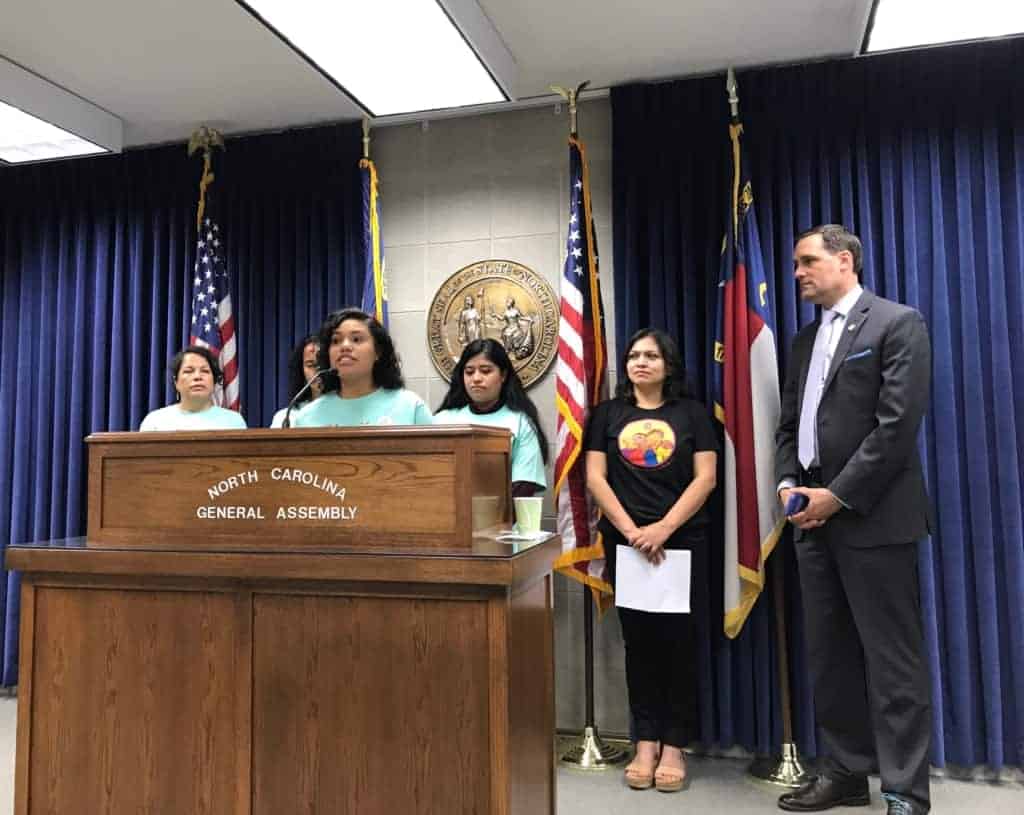
Meyer emphasized that the advocacy day was about the importance of access to education for all North Carolinians, including Latino communities. He has sponsored multiple bills this session related to just that, including in-state tuition equity for immigrant students, the creation of a task force to examine opportunity gaps in schools, and House Bill 999. Filed in April, HB 999 would revise the students with limited English proficiency (LEP) allotments and would require the State Board of Education to study and appropriate funds to those allotments. The bill was referred to House committees on appropriations and education.
Carmin Roldan, one of the lead organizers of Educación Sin Barreras NC, said that the state’s declining investments in public education disproportionately harm English language learners.
“English language learners in North Carolina have a huge achievement gap. And that is not a reflection of their ability. That’s not a reflection of their cognitive development. It is a reflection of the badly designed program that they are being offered. This lack of commitment in providing them with the support they need is evident,” said Roldan. “And we are united here to see that that ends. Our children cannot afford for this opportunity gap to increase.”
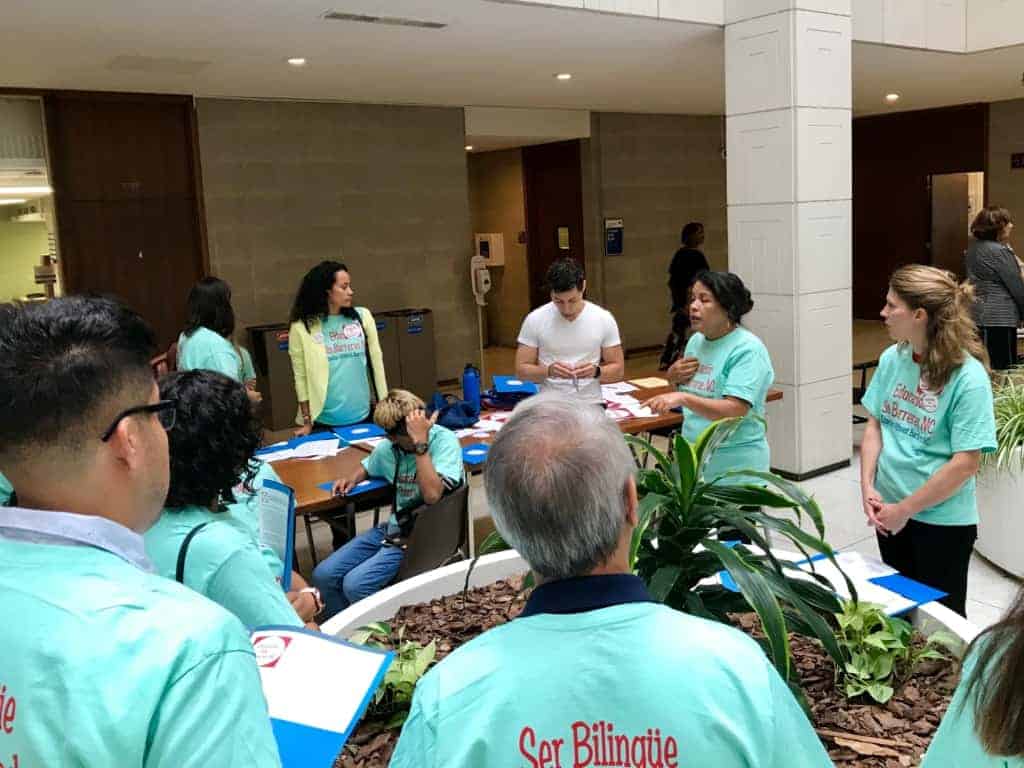
Ginny Clayton, an ESL teacher at Cary High School and a member of Educación Sin Barreras NC, sees the importance of supports for English learners in her classroom and said they need to be expanded both in her district and statewide.
“Our English learners are an untapped resource. They have a lot to provide to the community, but they’re viewed from a deficit perspective,” said Clayton. “I feel like if teachers were trained to use the first language of students as an asset and build on that, English learners would be more confident, they’d take more risks in school, be motivated to graduate and pursue higher education, and have all kinds of careers.”
According to Roldan, Educación Sin Barreras NC has the support of 24 organizations thus far, including the NC Justice Center, NC Child, Students for Education Reform, and more. Moving forward, Roldan said the group plans to offer a leadership and advocacy institute for parents to provide information on how education policy decisions are made and to empower them to advocate for their families.
Roldan hopes that the Educación Sin Barreras NC advocacy day brought the needs of bilingual students to the attention of legislators, signaled the beginning of the group’s ongoing work around these issues, and, perhaps most importantly, inspired a shift in attitude around what it means to be bilingual.
“We want all the kids to feel proud of being bilingual,” Roldan said. “We want the conversation to change from ‘Oh, he speaks Spanish, he has a problem’ to ‘Wow, he’s bilingual, and he has an extraordinary set of skills that makes him even better.'”
For more, read the following brief from the Education and Law Project of the NC Justice Center.
